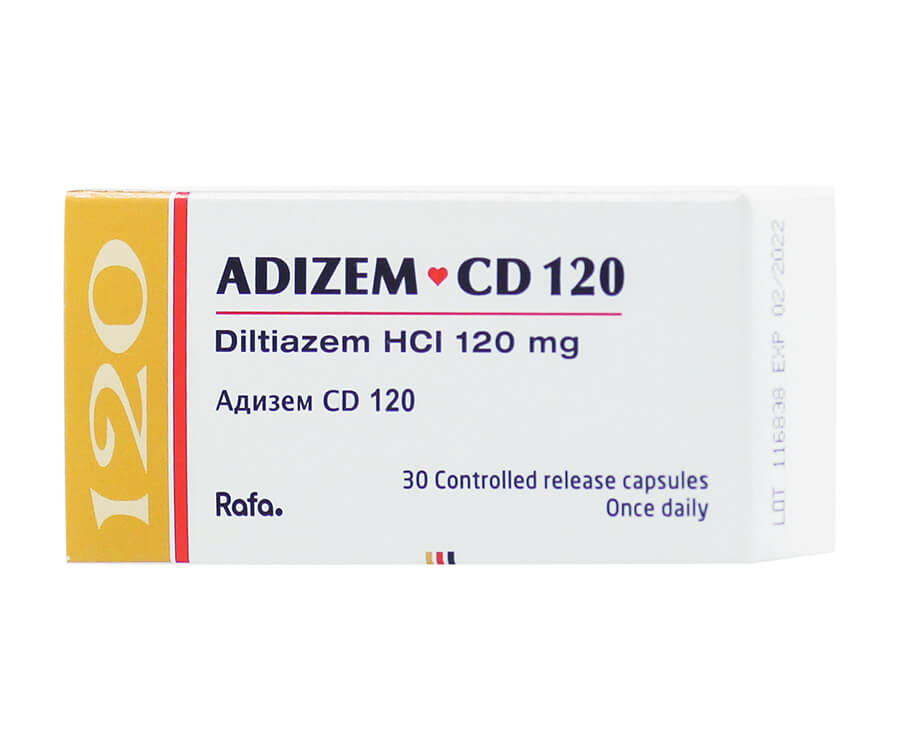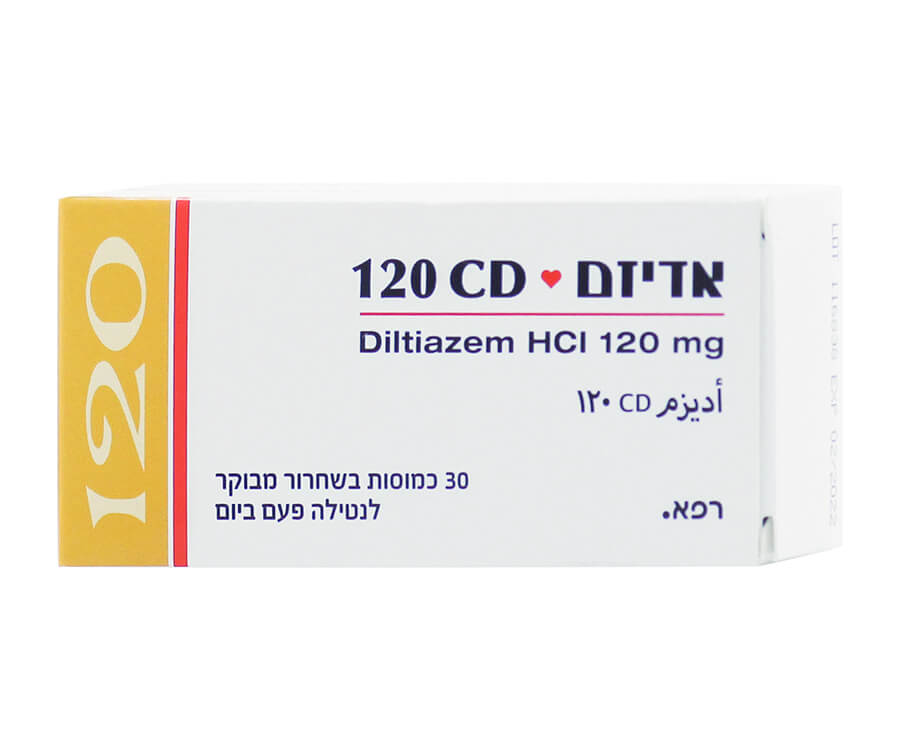Cardizem (Diltiazem/Dilatam) and Cardizem SR (Adizem CD/Dilatam SR) (generic name: diltiazem) are prescribed to treat high blood pressure, irregular heartbeat (arrhythmia) and angina pectoris (chest pain due to blockage or structural damage to the heart muscle.
Diltiazem belongs to a class of drugs known as calcium channel blockers. It can reduce the strength of heart muscle contractions and lower the heart rate by slowing conduction through the atrioventricular node, which increases the time needed for each heartbeat. This is done by preventing calcium from entering the heart and blood vessel cells and relaxing the smooth muscles in the walls of the blood arteries. Each of these effects results in reduced oxygen consumption by the heart’s muscles.
There are different forms of diltiazem. Cardizem ( also Diltiazem/Dilatam) is designed for extended release and may be taken more than once each day. Cardizem SR (also Adizem CD/Dilatam SR) is designed to release the active ingredient slowly so that it works over 24 hours and can be taken once a day. CD stands for “Controlled delivery”, and SR stands for “Sustained Release”.
Dosage
The medication should be taken as directed by the doctor. The usual dosage is one or two tablets per day of the extended release version or once every 24 hours for the CD or SR version. It should be taken by mouth with or without meals. Don’t take more than the prescribed dose.
Don’t chew or crush the capsule or its contents, since this may cause rapid release of the active ingredient, leading to overdose and severe problems. Take the dose at roughly the same time every day. If taking the medicine has been delayed by more than 4 hours, consult with a doctor regarding the continuation of treatment. Even if the state of health improves, do not stop treatment with the medicine without first consulting a doctor.
Storage
Store the capsules in their original packaging at or below 25ºCelsius / 77ºF, away from moisture, light, and heat. The medication should be kept out of the sight and reach of young children.
Please read our friendly tips on handling medicine safely.
Q&A
What are the typical uses of diltiazem?
Diltiazem is commonly prescribed either on its own or in combination with other medications to manage severe chest pain (angina) or high blood pressure (hypertension). High blood pressure can increase the strain on the heart and blood vessels. Prolonged high blood pressure can lead to malfunction of the heart and arteries.
How long should one continue taking diltiazem?
For anyone using diltiazem to control blood pressure or angina, it is usually recommended for long term use – potentially for life. Consult a doctor before discontinuing diltiazem. Ceasing its use could result in a rise in blood pressure increasing the risk of a heart attack or stroke.
What signs might suggest that an individual is receiving a dose of diltiazem?
A slow heart rate may not always be a cause of concern. However, if a person experiences symptoms like fatigue or difficulty breathing, inform a healthcare provider promptly. These signs could indicate that the dosage of diltiazem is too high.
This text is for informational purposes only. Please consult a doctor or pharmacist before using any medication.
Read the information leaflet that comes with the medication.
If after taking this medicine, a sudden allergic reaction (anaphylaxis) occurs, with symptoms like swelling of the face, tongue, or throat making it difficult to breathe or swallow, or there is wheezing, hives, rash, blistering, or peeling of the skin, call a doctor or 911 right away, or go to an emergency room immediately.
Most people who use Cardizem and Cardizem SR do not experience any negative side effects. Doctors prescribe Cardizem and Cardizem SR because they assess the benefits of such treatment outweigh any likely unwanted effects.
Some of the side effects that have been reported include:
- Swelling of the hands and feet
- Nausea
- Indigestion
- Constipation
- Headache
- Dizziness
- Irregular, strong, or fast heartbeat
- Fatigue
- Anxiety
Not all side effects are listed here. If these or other unlisted symptoms persist or worsen, consult a healthcare provider or pharmacist.
Cardizem and Cardizem SR is a first line treatment for the following disease conditions:
- Hypertension (high blood pressure)
- Angina (chest pains)
It can also be prescribed for supraventricular tachycardia, atrial fibrillation and hyperthyroidism (if beta blockers are not effective).














